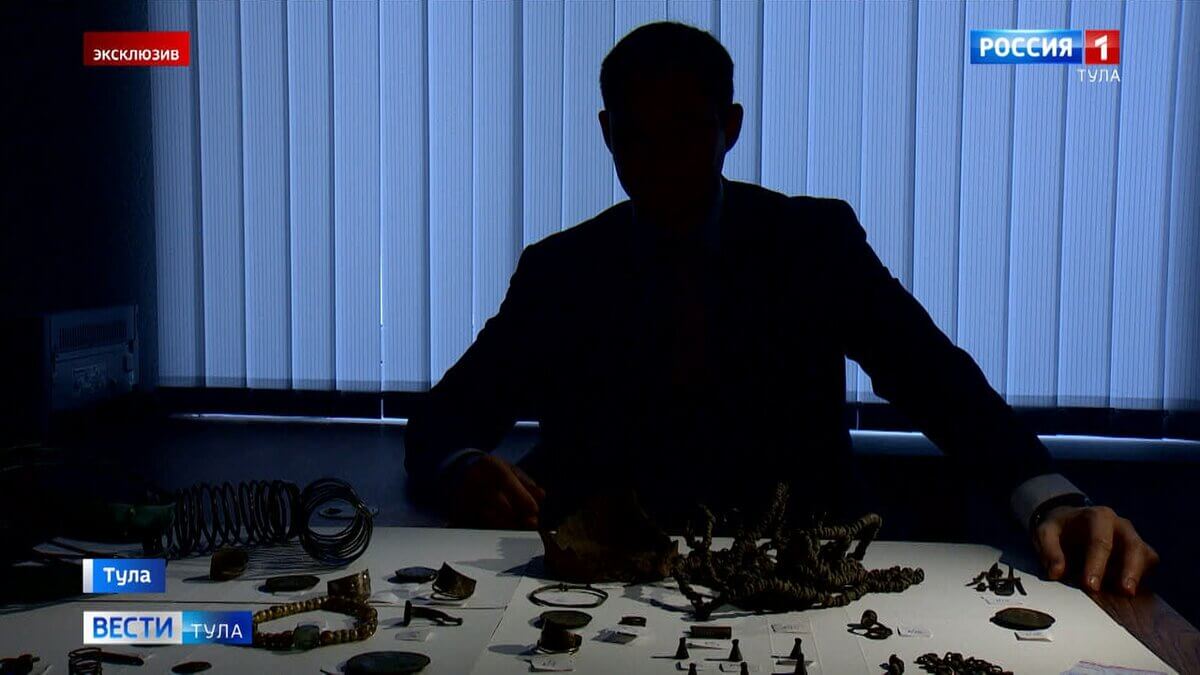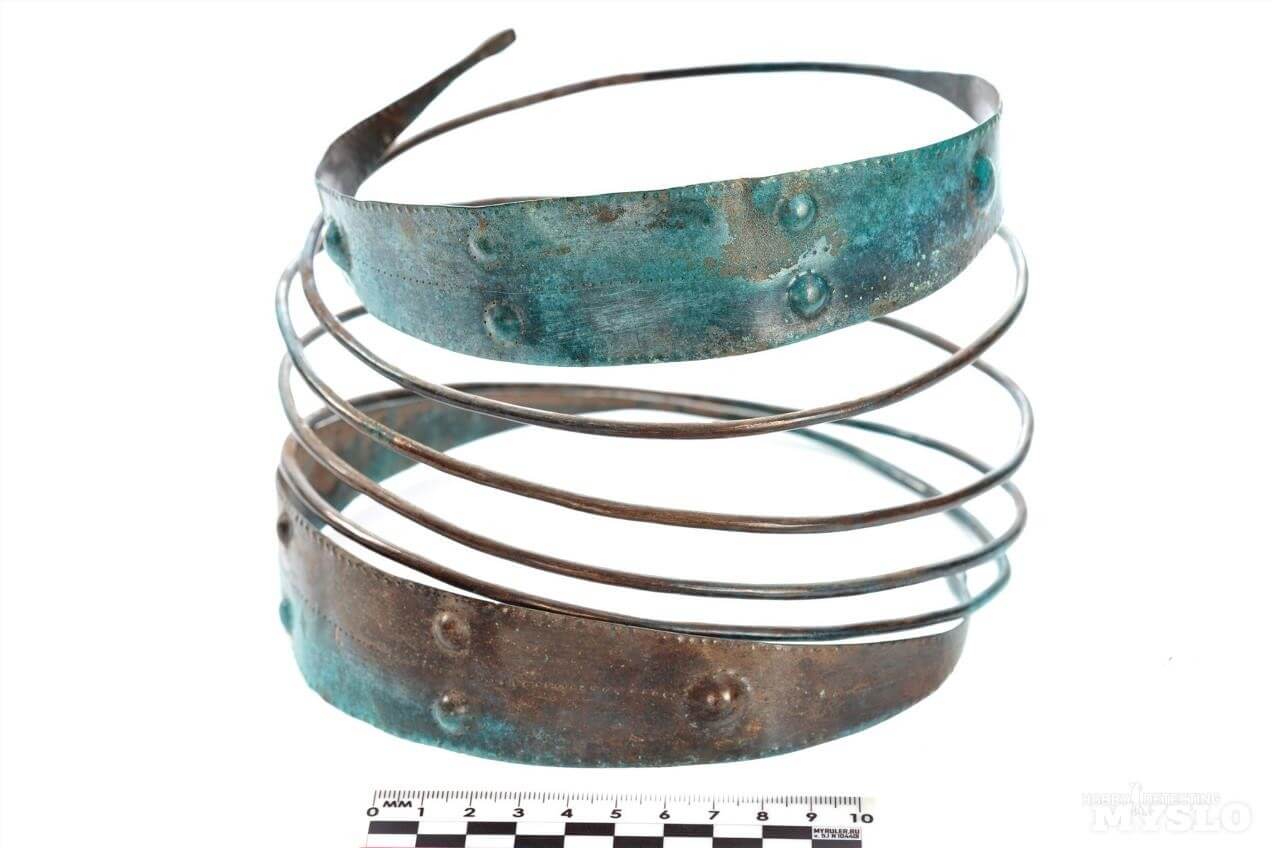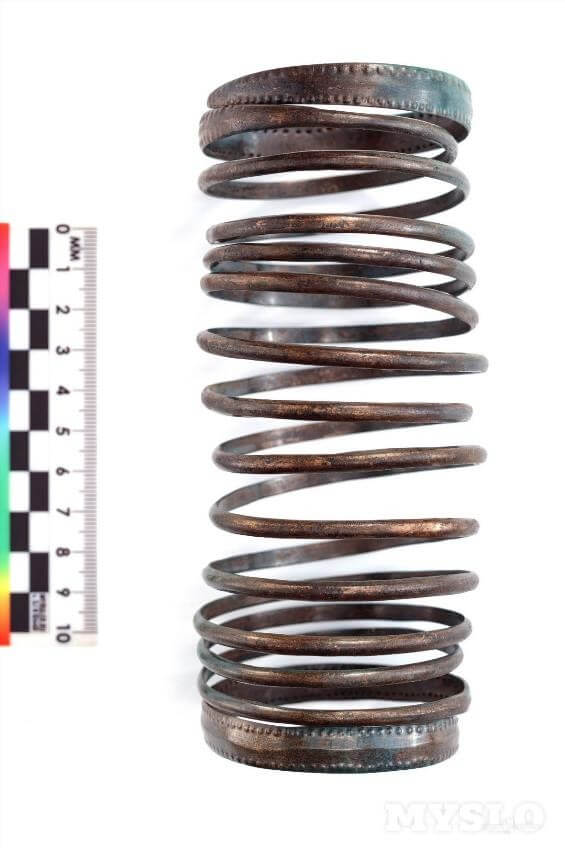The case of Yulian Yudin and the history of the Tula treasure of the Sarmatian era
We must admit right away that over the past two years the number of criminal cases against so-called “black diggers” has decreased significantly. If in 2018 there were more than twenty such cases, over the past two years, I managed to find only one. There are several reasons for this reduction and, first of all, this is a change in the very essence of the legal framework in the system of protection of archaeological sites, which will be discussed a little in this note.
So. As many authors have done lately – Warning!!! Attention, long text!!! If you immediately get a headache after reading ten sentences, go on and watch TikTok.
I'll start in order. In March of this year, the Leninsky District Court of the Tula Region passed a verdict against Yulian Dmitrievich Yudin, paragraph “a”, part 3, article 243.2 of the Criminal Code of the Russian Federation. Illegal search and (or) seizure of archaeological objects from their burial sites. I think that many keen antique diggers have heard a little bit about this story from chats and short notes in the media. I assure you that you have no idea how twisted this story is.

For those readers of our blog who like to analyze this kind of notes at the maximum level of complexity, I am publishing a link to the court’s website https://leninsky—tula.sudrf.ru//modules.php?name=sud_delo&name_op=doc&number=145464515&delo_id=1540006&case_type=0&new= 0&text_number=1&srv_num=1
A rare treasure of the Sarmatian period that has no analogues in the history of Russian archeology, a reseller-collector, archaeologists, the Kulikovo Field Museum, State Historical Museum experts, an FSB operation under the guise of the ORM “Operational Experiment”, and much more. So, stock up on popcorn. Hollywood never dreamed of
On May 12, 2020, citizen Yudin was searching for scrap metal and coins, somewhere in the vastness of the Tula region, the search coordinates are hidden in the case materials. During search work, at a depth of about half a meter, on the slope of a ravine, Yulian Yudin discovered a treasure chest consisting of 42 items. Glass beads, bracelets and other bronze jewelry. I found it, dug it up, put it in a bag and took it home.
Within a week, Yudin posted photographs of the finds on one of the thematic sites (data removed) for identification and evaluation. He was unable to get any clear answer from the specialists on the site. About a year and a half later, Yulian Yudin told his childhood friend (in the court order noted as FULL NAME 9) about the treasure he had found. After which the idea came that the treasure could be sold at a profit.

A childhood friend found a well-known collector in Tula (in the court order noted as Full Name 2) and after discussing the terms of cooperation, Full Name 9 (childhood friend) transferred the treasure to Full Name 2 (collector) on the terms of a commission of 10% of the sale amount.
After about six months, it became clear that it was impossible to sell the treasure, then the collector suggested that Yudin sell this treasure to the Kulikovo Field Museum. Yudin agreed. As a result, Full Name 2 (collector) contacted employee of the Kulikovo Pole State Museum, Full Name 6. And offered him to buy the treasure for 300,000 rubles.
Note from the author of the note. Well, up to this moment I had been reading this resolution relatively calmly, but then I started laughing, excuse me, laughing homerically. Well, okay, Yulian Yudin and his childhood friend are simple people. But the intermediary in the person of a respected collector had to assume and know what, in the end, this kind of appeal to an employee of the state museum would turn out to be. Dear collectors, study domestic law and legal practice based on such episodes, we do not live in Britain, where the Scottish Museum paid a treasure hunter 7 million pounds for the treasure he found.

Employees of the Kulikovo Pole State Museum asked an intermediary to confirm that the treasure was found on the territory of the Tula region. Namely, indicate the location where the treasure was discovered. The intermediary talked with Yudin, who sent off the coordinates of the area. The museum's archaeologists, having received the coordinates, went to the site and discovered… What do you think? Right. A hole more than half a meter deep that was not buried after the treasure was removed. Scientific archaeological studies of the soil along the walls of the pit showed the presence of a cultural layer and the fact of its damage. Which subsequently, at the trial, became the main and only evidence of the defendant’s guilt
Note from the author of the note. Something tells me that after reading this note, there will be slightly fewer fans and convinced supporters of not digging holes behind themselves.
I’m missing a detailed explanation from archaeologists about the uniqueness of the treasure itself; there are a lot of specialized terms there. Let's move on to the story itself. Employees of the Kulikovo Pole State Museum told the intermediary to tell the owner of the treasure that the museum is ready to accept a set of archaeological objects as a gift free of charge, that is, free of charge. Needless to say, the owner of the treasure refused such a generous offer and decided to continue searching for a buyer for the treasure.

Collector Full Name 2 posted an advertisement on the Internet (the name of the resource is hidden) about the sale of a treasure with detailed photographs. Within a week, two buyers contacted the intermediary. To assess the condition of the treasure, the buyer agreed to meet with an intermediary at the city gas station. During a conversation with the buyer, the intermediary stated that the treasure belonged to him. However, after the buyer presented the identification of an FSB officer, a respected collector in the city hastened to say that the treasure was not his and gave away Yudin’s contacts, as well as all correspondence in the TG with him.

Citizen Yudin was detained at work and escorted to the FSB Directorate for the Tula Region, where he wrote a sincere confession and expressed his readiness to fully cooperate with the investigation.
In February 2023, the case materials were transferred to court. And, the hearing on the case was postponed twice. I will tell you why in the next article with a full analysis of the legal and legislative nuances in this criminal case.

As a result, on March 29, 2023, judge S.N. Nikishina rendered a verdict.
Yudin Yulian Dmitrievich was found guilty of committing a crime under paragraph “a” of Part 3 of Art. 243.2 of the Criminal Code of the Russian Federation and impose a fine on him in the amount of 250,000 (two hundred fifty thousand) rubles, with deprivation of the right to engage in activities related to work on identifying objects of archaeological heritage, including work aimed at searching and seizing archaeological objects, using special technical search tools.
– a metal shovel “Fiskars” with an irregularly shaped black handle, a metal detector with an attached tag “, in accordance with paragraph “g” of Part 1 of Art. 104.1 of the Criminal Code of the Russian Federation to confiscate and turn into state property.
Dear friends and readers of our blog. The case of Yulian Yudin is really interesting, and, first of all, in terms of law enforcement practice. A note on this topic will definitely be published on the blog. Follow the news and subscribe to our Zen channel if you have not already done so.
I wish everyone good luck. And, dig holes behind you
